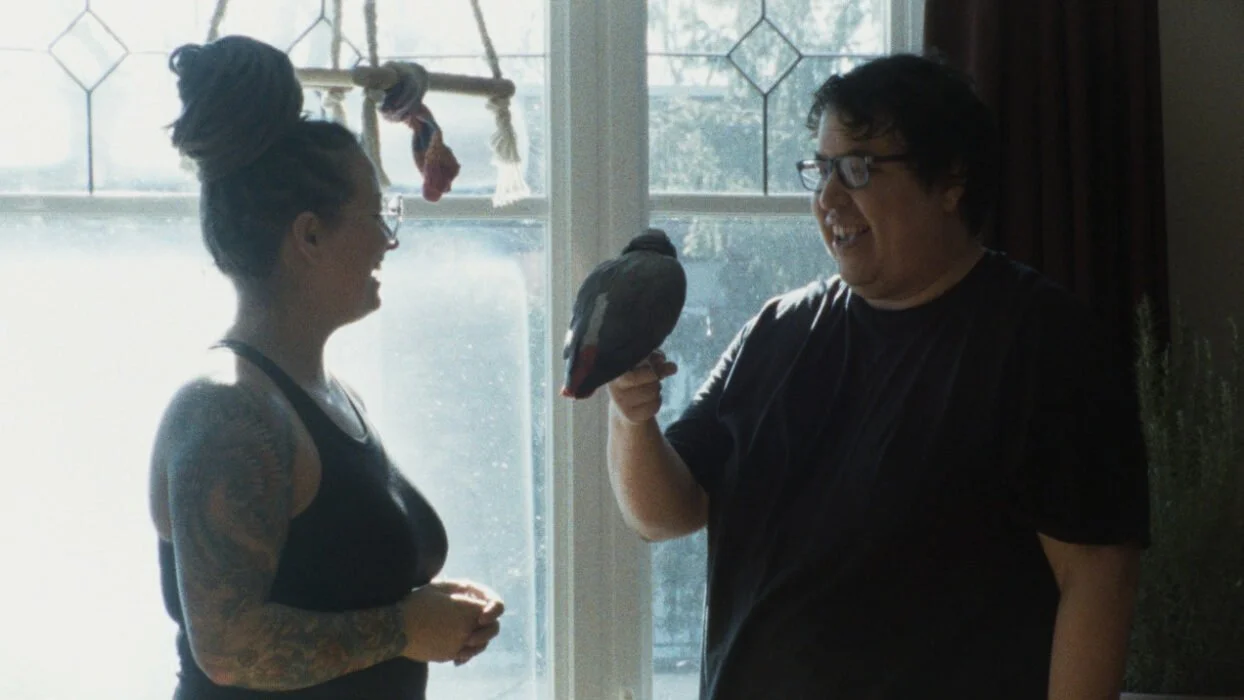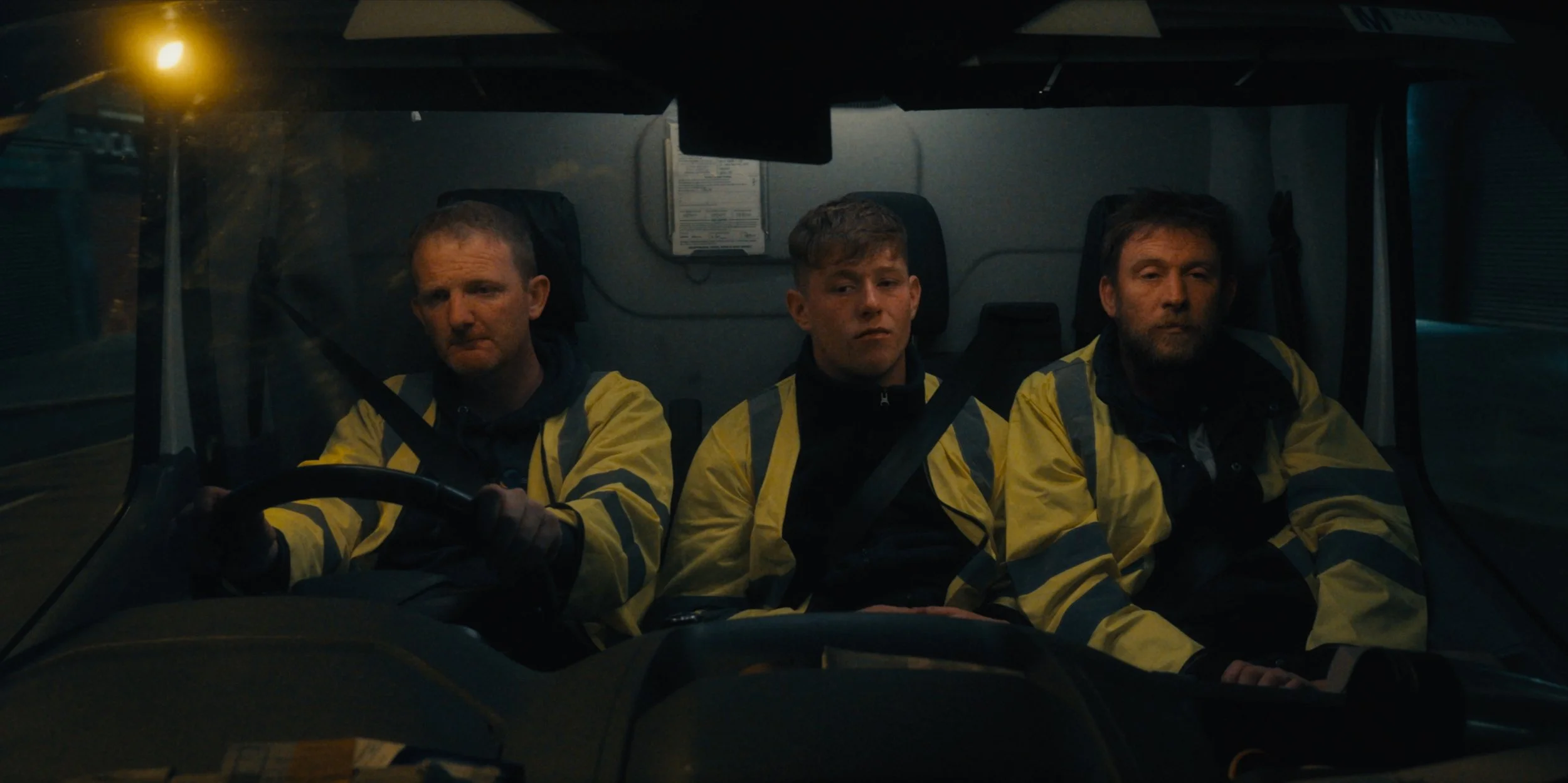Paul Interview : Scrubbing Dominatrix Kitchens to Heal
Sat across from me in the bar at Visions du Réel, Québécois director Denis Côté whimsically opens our conversation about the making of his latest film, Paul:
"It was quite an encounter"
Paul is a simp. More specifically, he's a cleaning simp. Simps are men who choose to be subservient to women. In Paul's case that consists in serving about a dozen women with five to six house cleaning sessions a week. But Paul likes to clean real hard. He especially likes being whipped afterwards, or better still, being roped into any other kinky games or tasks, if you'll pardon the pun.
Paul, the film, is an observational documentary that is brilliantly successful at being just that, observational. It forces you to withhold judgement on an overweight instagrammer who lives alone, spends most of his time on his phone and gets his kicks from cleaning women's kitchens and getting beaten.
But Côté's patient, non-sensationalist treatment reveals a man in touch with his feelings, fighting for his mental health and pursuing positive, affectionate relationships in a way that resonates with people online.
"It was a very dangerous project. It could have been exploitative, voyeuristic. It had to be observation without judgement and when you do that right, you fall in love with your subject."
Côté first found out about Paul through someone he was dating at a time when he was expecting a long awaited kidney transplant:
"She kept referring to 'Paul' : 'I'll call Paul, he'll give me a lift.' Who's Paul? 'He's a guy I can call 24 hours a day, seven days a week, who'll just give me a lift.' Wait, wait, wait. Who's Paul ?"
He resorted to contacting Paul as soon as he'd had his transplant, "whatever my life would be like on the other side".
"I got the transplant, I called him, he came to my place and told me his whole life story. The guy is brilliant. [...] He was very touching for me right away. Full of paradoxes, full of contradictions. I never knew if I was dealing with a character or a real person but I could feel that was really suffering from anxiety and solitude or depression."
In his twenties, Paul suffered from a severe, isolating and lonely period of depression during which he struggled with obesity. At 27 he decided that he had to find a way of meeting women and started a Tinder profile offering to clean for free.
"It worked right away. He started cleaning - badly - and began a new having new, intimate relationships with women."
But slowly, Paul developed a liking for dominant women. He liked getting beaten, being humiliated, receiving gifts or compliments and being interacted with while cleaning.
Over the course of several years Paul was able to start overcoming his crippling social anxiety and recover enough self-confidence to find a way out of his depression by becoming a real simp, a pro.
"He became quite famous in the BDSM world. Just as the cleaning guy, not as a guy who's engaging in sexual activities or going to dungeons or special nights."
The reaction to the film so far has been emphatic. Like Côté, audiences everywhere are falling for Paul.
Tattooed from the neck down and dressed in black despite the spring sunshine, the renowned director, who's been making films for 20 years, describes the unfamiliar feeling of being overshadowed by his subject during the film's world premiere at Berlinale.
"There were more than 600 people at the first screening, and all the energy was on him. He was such a rockstar! I saw a girl wiping tears. I was like : what is happening?"
Paul is also a content creator. He journals his transformation as Cleaning Simp Paul with the daily Instagram reel series "Cleaning to save my life", excerpts of which regularly chapter the film and provide insight into his mental journey.
Côté mentions how well the film has connected with a younger audience, who admire Paul’s courage for speaking up about his ongoing struggle with social anxiety and depression. But it also subtly questions his, and our, dependence on phones, our need for screens to protect us from the real world, a filter that allows us to control our image.
It's not the only problematic aspect of Paul’s life that the film brings up. Whereas plenty of his relationships seem positive and helpful, it dawns on the viewer that they are all transactional in nature. Aside from the cleaning, there are several surreal scenes where Paul serves as a literal prop for Onlyfans videos, being ridden like a horse or holding up a box of doughnuts for an actress to lather herself in - to Paul's visible, and comical, boredom.
Denis Côté, director of ‘Paul’
The film does this well, by allowing Paul himself to voice this concern towards the end of the film, having given the viewer plenty of space to ponder it already and avoid being too directional.
However, it also raises questions about the nature of filmmaker’s relationship with his subject.
“You don’t know who’s using who. I’m transactional as well in the sense that I think I have a good subject, and he wanted a film about him. It was very scary for me”
"Where does he find real friendship? I don't know. But he verbalised this during the project. He said 'My dream right now is to have a friend. Meaning I don't clean, we could just walk and talk.'"
Paul had its world premiere at Berlinale and has since been selected at Cinéma du réel and Visions du Réel among 10 other festivals. Next it will be shown at Jeonju International Film Festival in Korea and Hot Docs among many more. It has a theatre release planned in Montreal on May 2nd 2025.









